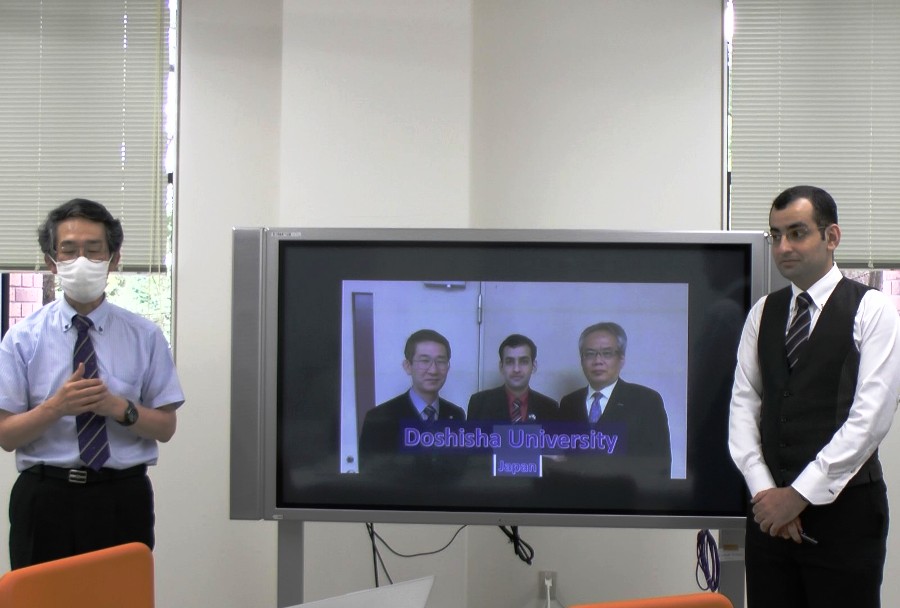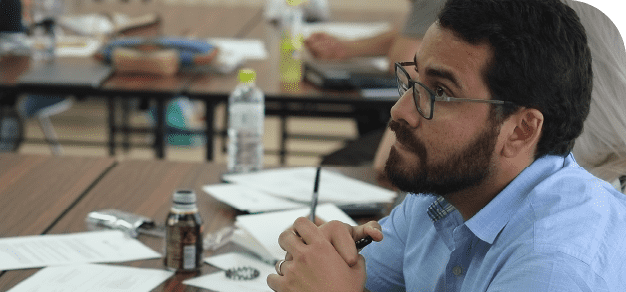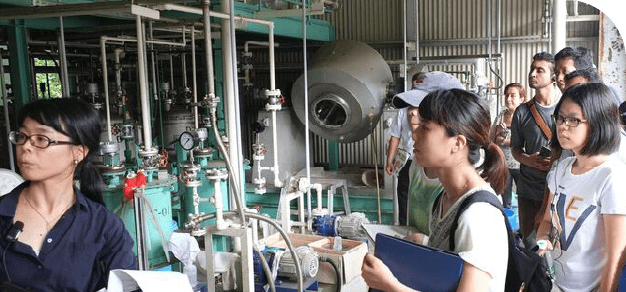GRM Students’ Reports
GRM履修生活動レポート
GRM Program Completion Report
Graduate School of Science and Engineering Deeb Elian ALASHGAR
2020/08/09
Globalization has become inevitable in this era as everything in this universe has become highly interconnected and has transformed the world from a giant planet into a small space. This transformation has made the process of solving problems require a global outlook that is characterized by the global and rapid response in addition to feedback from the work environment, whether environmental, health, social, or engineering. From the engineering perspective, feedback means that we monitor the system and improve its performance, which means that the system's determinants and feedback are all engineering elements. On the other hand, the reality is different; any problem in this universe cannot be solved from one view, but rather by looking at it from several aspects. For example, we cannot solve the problem of electricity in a specific region without looking at other factors affecting power generation systems such as financial and environmental determinants or political obstacles.
Electric energy cannot be generated through diesel engines in an area that is considered a natural reserve, so we must find alternatives.
In a nutshell, this means that the project can only be resolved by interconnecting engineering, environmental, economic, and other fields. In order for this problem to be uniquely solved, the unilateral management by the project is insufficient but instead needs to be pioneered to achieve the project's purposes in an integrated manner without any future problems. From this pioneer-based approach in project management, the idea of global resource management (GRM) program originated, where the knowledge of the administrators is expanded in all aspects related to the administrative problems of the projects in terms of economic, environmental, political, social, engineering, or other aspects.
The benefit of the GRM program is that it improves my views towards creating a study-oriented proposal to solve the problem in an integrated manner from all aspects. This program attracted my attention when I first heard about it in 2014 due to its integrated vision that takes into consideration the comprehensive view of solving problems. In the same way, the reality is different, the challenge is not simple, and the results will not satisfy everybody no matter how unique. Consequently, the program provides the largest possible amount of diverse knowledge and skills required for students to meet the professional needs of entrepreneurship.
I have been enrolled in this academic program besides my master's and doctoral studies in electrical and electronic engineering during the past five years. I've been involved in a variety of GRM's classes and programs. This program included an interconnected series of academic programs divided into three sections. The first set of these courses contains academic lectures related to international studies to enhance our capabilities and our skill in understanding global problems so that our engineering view of problem-solving becomes more comprehensive and closer to realism. These courses include global studies courses and GRM advanced courses. Together they formed an integrated theoretical system on the humanities and international relations in all aspects such as environmental and economic aspects. Through them, we benefited from the experiences of local and international professors, who strengthened our entrepreneurial skills.
The second set of these courses is the field education. It seeks to provide students the ability to learn analytical capabilities and to implement scientific expertise, methodology, and strategies. in the same way, it offers the chance to reach experts and the work sectors to get impressions, insights, and ideas, to improve the performance of the students in terms of individual and group works via experiencing different environments. My first experience in this set of courses was GRM On-Site Practice held in 2016 at Miyakojima in southern Japan. During the visit, we took many lectures on the environment, renewable energy, water problems, and the soil nature of Miyakojima Island. We worked and learned alongside people and discussed their water problems. Furthermore, we also learned how to integrate the natural sciences and social sciences to find solutions for the problems. That happened after we communicated directly with people on the street and asked them about the problem of underground water on the Island and their opinions about building a new underground dam on the Island.
The third set of these courses is the GRM advanced courses. This set focuses on developing our capabilities to improve our career in the future and to study the local and international work sectors and adapt our academic studies to the market demand to ensure the flexibility of transition from study life to the practical life after graduation.
The program generously spent on these educational groups to uplift the students affiliated with the program to the highest levels of academic achievement in line with the requirements of different work environments. It has created future entrepreneurs who are able to identify thorny international issues in a comprehensive way to solve them constructively.
I have benefited from the generous support of the program, whether through my academic studies or internships and on-site courses inside and outside Japan, where the program provided me with many opportunities for academic research and training within institutions to strengthen my practical skills in the subject of my doctoral thesis.
I stayed outside Japan for three months to study the future of my research internationally and how to benefit from the experiences of others and use them to develop my research in a manner consistent with the global view of research alongside the experiences taught by my supervisor in Japan.
In general, my studies in this program affected my view of engineering research. My view became not limited to the engineering side only, but also to the human side and what my research must provide to serve humanity. For example, controlling the spread of the corona-virus has recently become a national issue in many countries. Its control becomes difficult and requires many measures. Quarantine alone is not enough to limit the spread of the Corona pandemic, but medical, engineering, social, and other solutions must be taken into account. This means that advanced technologies can play a role in limiting the spread of the Corona via avoiding touching electronic devices in public institutions from several people at the same time. From this point of view, wireless charging systems are an effective system for reducing human contact in public facilities. There are many methods used to prevent Corona, including medical methods, engineering methods. WPT system is considered as one of the triggering points to reduce the coronavirus spread. I think that the WPT research will have positive repercussions in the medical and international fields besides its importance in engineering.
There are many WPT systems. One of them is the Inductive Power Transfer (IPT) system, which is the focus of my doctoral dissertation. The power is transferred from the power source to electronic devices without any physical contact via a magnetic field. This technology has become globally attractive in the smartphones and vehicle charging systems. However, it faces some difficulties, such as the effect of misalignment on the efficiency of the system. Through my doctoral dissertation, two methods were used to improve the system's tolerance in terms of misalignment. The enhancement of the system is via best coils' geometries misalignment tolerant alongside the best capacitive compensation topology of the WPT's coils.






